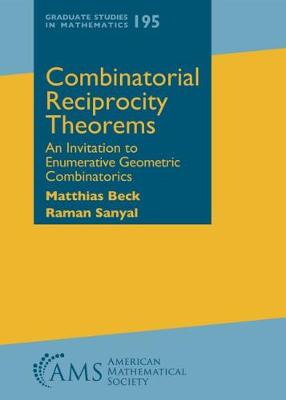Graduate Studies in Mathematics
1 total work
Combinatorial reciprocity is a very interesting phenomenon, which can be described as follows: A polynomial, whose values at positive integers count combinatorial objects of some sort, may give the number of combinatorial objects of a different sort when evaluated at negative integers (and suitably normalized). Such combinatorial reciprocity theorems occur in connections with graphs, partially ordered sets, polyhedra, and more. Using the combinatorial reciprocity theorems as a leitmotif, this book unfolds central ideas and techniques in enumerative and geometric combinatorics.
Written in a friendly writing style, this is an accessible graduate textbook with almost 300 exercises, numerous illustrations, and pointers to the research literature. Topics include concise introductions to partially ordered sets, polyhedral geometry, and rational generating functions, followed by highly original chapters on subdivisions, geometric realizations of partially ordered sets, and hyperplane arrangements.
Written in a friendly writing style, this is an accessible graduate textbook with almost 300 exercises, numerous illustrations, and pointers to the research literature. Topics include concise introductions to partially ordered sets, polyhedral geometry, and rational generating functions, followed by highly original chapters on subdivisions, geometric realizations of partially ordered sets, and hyperplane arrangements.
